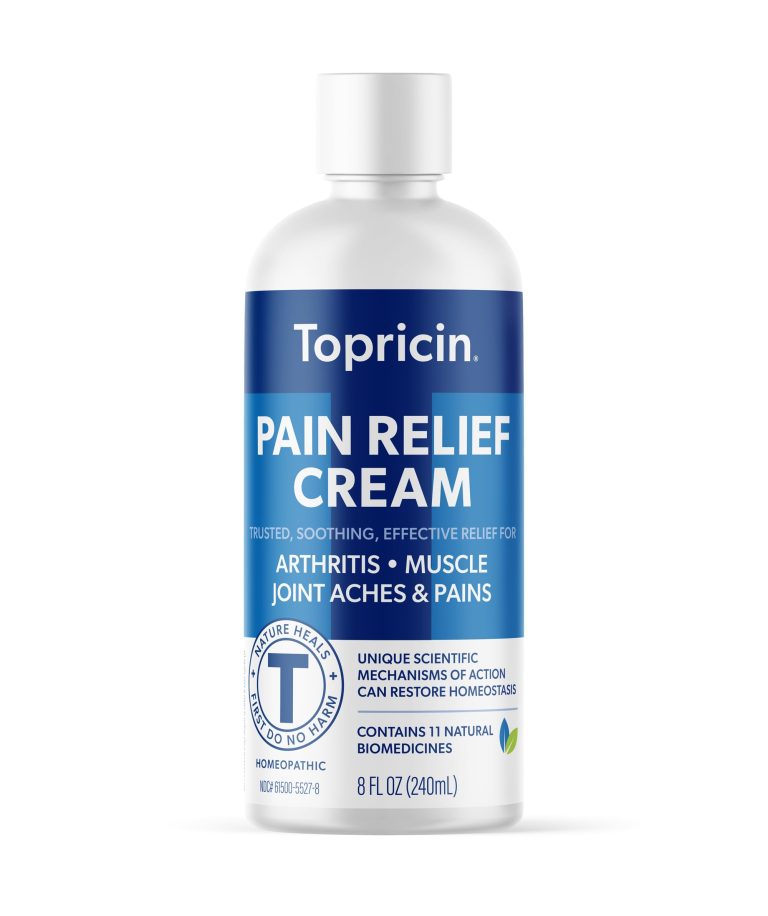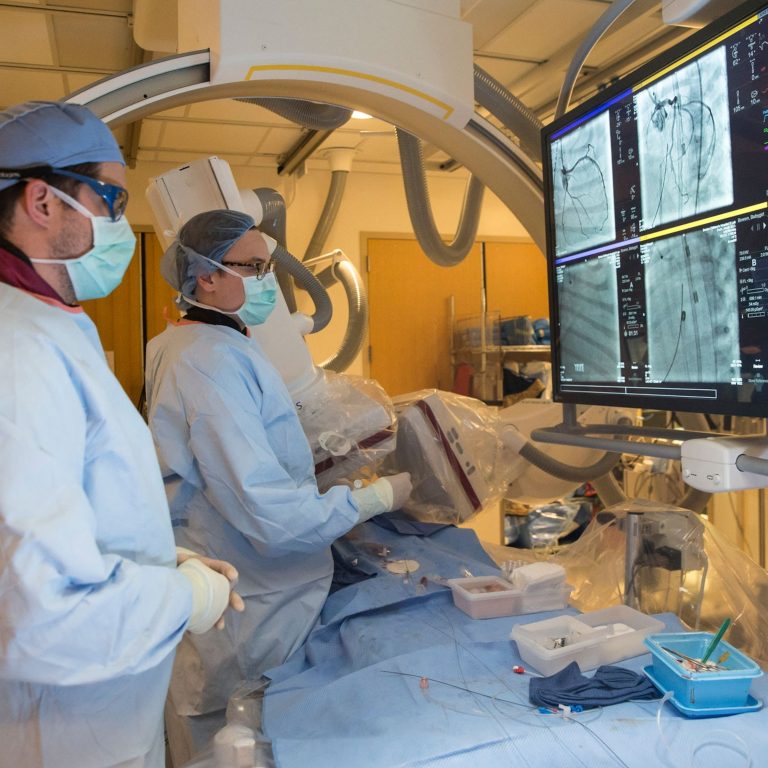Liver Cirrhosis Treatment in Bangladesh – Natural Medicine 2023
The best liver cirrhosis treatment in Bangladesh involves a combination of lifestyle changes, medications, and sometimes liver transplant surgery. Cirrhosis cannot be reversed, but treatment can slow down its progression, alleviate symptoms, and prevent complications.
Lifestyle changes include abstaining from alcohol, eating a healthy diet, and avoiding certain medications. Medications may be prescribed to manage symptoms and treat underlying causes such as hepatitis. In severe cases, a liver transplant may be necessary. It is important to consult with a healthcare professional for an individualized treatment plan.

Credit: www.simplilearn.com
Understanding Liver Cirrhosis
What Is Liver Cirrhosis?
Liver cirrhosis is a progressive liver disease characterized by the scarring and damage of liver tissue. This scarring disrupts the normal function of the liver, affecting its ability to perform vital tasks like filtering toxins from the blood, producing bile, and metabolizing nutrients.
As the condition advances, healthy liver tissue is gradually replaced by fibrous scar tissue, which hampers the liver’s efficiency and can lead to serious complications if left untreated.
Causes Of Liver Cirrhosis
Liver cirrhosis can develop due to various factors that cause long-term damage to the liver. Some of the primary causes include:
- Chronic alcohol consumption: Excessive and prolonged alcohol abuse is a leading cause of liver cirrhosis. Alcohol impairs liver function and triggers inflammation, leading to the formation of scar tissue over time.
- Chronic viral hepatitis: Hepatitis b and c infections can induce liver inflammation and damage, which can progress to cirrhosis if left untreated.
- Nonalcoholic fatty liver disease (nafld): This condition occurs when fat builds up in the liver, usually as a result of obesity, insulin resistance, or metabolic disorders. Over time, nafld can lead to cirrhosis.
- Autoimmune diseases: Certain immune system disorders, like autoimmune hepatitis and primary biliary cholangitis, can cause ongoing inflammation and damage to the liver, eventually leading to cirrhosis.
- Genetic or metabolic disorders: Rare conditions, such as wilson’s disease, hemochromatosis, and alpha-1 antitrypsin deficiency, can impair liver function and contribute to the development of cirrhosis.
Symptoms Of Liver Cirrhosis
Liver cirrhosis often remains asymptomatic in its early stages, only manifesting symptoms as the disease progresses. Common signs and symptoms of cirrhosis include:
- Fatigue and weakness
- Abdominal pain or discomfort
- Yellowing of the skin and eyes (jaundice)
- Easy bruising and bleeding
- Fluid accumulation in the legs (edema) and abdomen (ascites)
- Itchy skin
- Loss of appetite and weight loss
- Nausea and vomiting
- Changes in bowel movements (diarrhea or constipation)
Diagnosing Liver Cirrhosis
Early diagnosis of liver cirrhosis is crucial for effective treatment and management. Here are the primary methods used for diagnosis:
- Medical history and physical examination: Your doctor will inquire about your symptoms, medical history, and risk factors associated with cirrhosis. They may also perform a thorough physical examination to check for signs of liver damage.
- Blood tests: Specific blood tests can assess liver function, detect hepatitis infections, measure liver enzyme levels, and identify any abnormalities that may indicate cirrhosis.
- Imaging tests: Ultrasound, ct scans, or mri scans can create detailed images of the liver, revealing any signs of scarring, abnormal growths, or changes in the liver’s size and shape.
- Liver biopsy: A small sample of liver tissue may be extracted and analyzed under a microscope to confirm the presence of cirrhosis, determine its severity, and identify the cause.
Early detection and timely treatment can help manage liver cirrhosis effectively, slowing down its progression and improving long-term outcomes for patients. Regular medical check-ups and lifestyle modifications are essential for individuals at risk or diagnosed with liver cirrhosis.
Best Treatment Options For Liver Cirrhosis
Liver cirrhosis is a serious medical condition that requires effective treatment to slow down its progression and manage symptoms. Several treatment options are available, ranging from traditional methods to advanced therapies and complementary approaches. In this section, we will explore the best treatment options for liver cirrhosis.
Traditional Treatment Methods
Traditional treatment methods for liver cirrhosis focus on managing the underlying cause and alleviating symptoms. Here are some commonly used approaches:
- Lifestyle modifications: Making lifestyle changes such as abstaining from alcohol, adopting a healthy diet, exercising regularly, and maintaining a healthy weight can significantly improve liver health.
- Medications: Certain medications may be prescribed to manage the symptoms of liver cirrhosis, such as diuretics to reduce fluid retention, beta blockers to control portal hypertension, and antiviral drugs for viral hepatitis-induced cirrhosis.
Medications For Liver Cirrhosis
In addition to symptom management, medications play a crucial role in treating liver cirrhosis. Some medications commonly used include:
- Ursodiol: This medication helps protect liver cells and may slow down the progression of certain types of liver cirrhosis.
- Corticosteroids: Corticosteroids can help reduce inflammation and manage autoimmune-induced cirrhosis.
- Antiviral drugs: If the cause of cirrhosis is viral hepatitis, antiviral medications can help suppress the viral activity and prevent further liver damage.
Lifestyle Changes For Liver Cirrhosis
Adopting certain lifestyle changes can have a positive impact on liver cirrhosis. Consider the following:
- Avoid alcohol: Alcohol is known to cause liver damage, and it can worsen liver cirrhosis. Complete abstinence from alcohol is necessary for better liver health.
- Healthy diet: A well-balanced diet, rich in fruits, vegetables, lean proteins, and whole grains, helps support liver function and overall health.
- Regular exercise: Engaging in regular physical activity improves blood flow, helps maintain a healthy weight, and supports overall liver health.
Advanced Treatment Options
For severe cases of liver cirrhosis, more advanced treatment options may be considered. These include:
- Liver transplantation: In cases where liver cirrhosis is advanced and irreversible, liver transplantation surgery may be necessary. This involves replacing the damaged liver with a healthy liver from a donor.
- Transjugular intrahepatic portosystemic shunt (tips): Tips is a procedure that involves creating a pathway between the portal vein and hepatic vein to alleviate portal hypertension and reduce complications associated with cirrhosis.
Emerging Therapies And Clinical Trials
Researchers are continuously exploring new therapies for liver cirrhosis. Some emerging options and ongoing clinical trials include:
- Cell-based therapies: Stem cell research and regenerative medicine offer promising potential for treating cirrhosis by stimulating liver tissue regeneration.
- Novel drug therapies: Several new drug treatments targeting specific molecular pathways involved in liver fibrosis are being studied in clinical trials.
Complementary And Alternative Treatments
Though not substitutes for conventional medical treatments, complementary and alternative therapies may be used alongside traditional methods. Consider the following options:
- Herbal remedies: Certain herbs and herbal preparations, such as milk thistle and dandelion, have been used traditionally for liver health. However, scientific evidence supporting their efficacy is limited.
- Acupuncture: This traditional chinese medicine technique involves stimulating specific points on the body with thin needles. While acupuncture may help manage symptoms, its effectiveness in treating liver cirrhosis is not well-established.
Remember, it is essential to consult with a healthcare professional before considering any complementary or alternative treatments for liver cirrhosis.
Liver cirrhosis requires comprehensive treatment that encompasses various approaches, from lifestyle modifications and medications to advanced therapies like liver transplantation. By working closely with healthcare professionals and exploring the available treatment options, it is possible to manage liver cirrhosis effectively and improve quality of life.
Lifestyle Management For Liver Cirrhosis
Liver cirrhosis is a serious condition that requires comprehensive treatment and lifestyle management. In addition to medical interventions, such as medication and procedures, making necessary changes to your diet and lifestyle habits can play a crucial role in managing the symptoms and complications associated with liver cirrhosis.
In this section, we will explore the importance of lifestyle management for liver cirrhosis and provide helpful suggestions for making necessary adjustments in terms of diet, alcohol consumption, support groups, and symptom management.
Diet For Liver Cirrhosis
Maintaining a balanced and nutritious diet is essential for individuals with liver cirrhosis. A diet specifically tailored for liver health can help alleviate symptoms and promote overall well-being. Here are some key points to remember when it comes to diet for liver cirrhosis:
- Foods to include:
- High-fiber foods such as fruits, vegetables, and whole grains can aid in digestion and prevent constipation.
- Lean protein sources like chicken, fish, tofu, and legumes provide essential nutrients without putting excess strain on the liver.
- Healthy fats found in olive oil, avocados, and nuts can support liver function.
- Foods high in antioxidants, such as berries, green leafy vegetables, and cruciferous vegetables like broccoli and cauliflower, can provide protection against further liver damage.
- Foods to avoid:
- Sodium-rich foods, including processed snacks, canned soups, and fast food, can contribute to fluid retention and exacerbate symptoms of liver cirrhosis.
- High-fat and fried foods can be difficult for the liver to process, leading to further damage.
- Alcohol should be strictly avoided as it can worsen liver cirrhosis and increase the risk of complications.
Alcoholic Liver Cirrhosis
Individuals diagnosed with alcoholic liver cirrhosis face specific challenges in managing their condition. Alcohol is a major contributor to liver damage, and eliminating its consumption is crucial for recovery. Here are a few key points to consider:
- Stopping alcohol consumption:
- Seek professional help, such as counseling or support groups, to overcome alcohol addiction successfully.
- Engage in activities that distract you from alcohol cravings, such as exercise, hobbies, or spending time with loved ones.
- Create a strong support network of family and friends who can provide encouragement and accountability throughout your journey to sobriety.
Support Groups And Resources
Living with liver cirrhosis can be overwhelming, but connecting with others who share similar experiences can provide valuable support and information. Look for local support groups or online communities dedicated to liver disease. Additionally, there are numerous online resources that can offer guidance and education on managing liver cirrhosis.
Some key points to remember:
- Support groups:
- Joining a support group can offer emotional support, practical advice, and a sense of community.
- Share your experiences, concerns, and questions with others who can relate to your journey.
- Gain valuable insights from individuals who have coped successfully with liver cirrhosis.
- Resources:
- Online platforms, such as reputable medical websites and government health portals, provide a wealth of information on liver cirrhosis treatment and management.
- Stay updated on the latest research, treatment options, and lifestyle recommendations.
Managing Symptoms And Complications
Liver cirrhosis can lead to various symptoms and complications that require careful management. Here are some suggestions to help individuals cope effectively:
- Fluid retention and diet:
- Limiting sodium intake can help reduce fluid retention. Avoid processed foods, and opt for fresh, low-sodium alternatives.
- If fluid retention persists, consult your healthcare provider, who might recommend diuretic medications or other interventions.
- Preventing liver damage:
- Adhere strictly to prescribed medications and follow your healthcare provider’s guidelines for managing your condition.
- Avoid hepatotoxic substances, such as certain medications, herbal remedies, and recreational drugs, that can further damage the liver.
- Vaccinations, including hepatitis a and b, can prevent additional liver damage caused by these infections.
By adopting a healthy and liver-friendly lifestyle, individuals with liver cirrhosis can improve their overall well-being and effectively manage their condition. Remember to consult with your healthcare provider or a registered dietitian for personalized advice and guidance.
Support And Resources For Liver Cirrhosis Patients
Living with liver cirrhosis can be challenging and overwhelming. However, there are various support and resources available to help patients and their caregivers navigate this journey. From support groups to financial assistance programs, these resources provide the much-needed guidance, empathy, and practical help.
In this section, we will explore some of the key support and resources available for individuals with liver cirrhosis.
Liver Cirrhosis Support Groups:
- Joining a liver cirrhosis support group can provide a sense of belonging and understanding. These groups often consist of individuals facing similar challenges and offer a safe space to share experiences, ask questions, and find emotional support. Some benefits include:
- Sharing experiences: Connect with others who understand your journey and can relate to your struggles.
- Emotional support: Receive encouragement, empathy, and compassion from individuals going through similar experiences.
- Educational resources: Gain valuable knowledge about liver cirrhosis, treatment options, and coping strategies through informative discussions and guest speakers.
Online Communities And Forums:
- In addition to physical support groups, online communities and forums can be invaluable sources of support. These platforms provide a convenient way to connect with individuals worldwide, access information, and seek advice. Consider the following benefits of online communities and forums:
- Global reach: Engage with individuals from diverse backgrounds who can offer unique perspectives and insights.
- 24/7 availability: Access support and information at any time that suits your schedule and needs.
- Anonymity and privacy: Feel comfortable sharing personal experiences and concerns without revealing your identity.
- Expert advice: Connect with healthcare professionals who may be actively involved in these communities and forums.
Caregiver Resources And Support:
- Caring for someone with liver cirrhosis can be physically, emotionally, and mentally demanding. Caregiver resources and support programs can provide the necessary assistance and guidance to help caregivers cope effectively. Consider the following resources:
- Education and training: Learn about the specific needs of liver cirrhosis patients, practical caregiving techniques, and self-care strategies.
- Respite services: Seek temporary relief from caregiving responsibilities to prevent burnout and maintain caregiver well-being.
- Support groups: Connect with other caregivers facing similar challenges, share tips and experiences, and receive emotional support from individuals who understand the journey.
- Professional counseling: Access counseling services to address caregiver stress, anxiety, and emotional well-being.
Financial Assistance Programs:
- The financial burden associated with liver cirrhosis treatment can be overwhelming for both patients and their families. However, various financial assistance programs are available to provide support. Some options include:
- Insurance resources: Explore insurance coverage options, such as government healthcare programs or private insurance plans, that may help cover medical expenses.
- Pharmaceutical assistance programs: Many pharmaceutical companies offer patient assistance programs that provide financial support for medications.
- Charity organizations: Seek assistance from nonprofit organizations specializing in liver diseases that may provide financial aid or connect you with additional resources.
- Social service agencies: Utilize local social service agencies that can help navigate financial aid programs, government benefits, and other forms of financial assistance.
Remember, you are not alone in your liver cirrhosis journey. Utilize these support and resource options to help you navigate the challenges and find comfort in the shared experiences of others.
Frequently Asked Questions Of Best Liver Cirrhosis Treatment in Bangladesh
What Are The Symptoms Of Liver Cirrhosis?
Symptoms of liver cirrhosis include jaundice, fatigue, abdominal swelling, nausea, vomiting, and loss of appetite. Other symptoms may include weight loss, weakness, itching, and confusion. It is important to seek medical attention if you experience any of these symptoms.
What Causes Liver Cirrhosis?
Liver cirrhosis can be caused by excessive alcohol consumption, chronic viral hepatitis (such as hepatitis b or c), fatty liver disease, and autoimmune diseases. Other factors that can contribute to cirrhosis include certain medications, genetic disorders, and long-term exposure to toxins.
What Are The Treatment Options For Liver Cirrhosis?
Treatment for liver cirrhosis focuses on managing the symptoms, preventing further liver damage, and improving liver function. This may involve lifestyle changes such as abstaining from alcohol, medications to reduce complications, and in severe cases, liver transplantation. It is important to consult with a healthcare professional for personalized treatment options.
How Can Liver Cirrhosis Be Prevented?
Liver cirrhosis can be prevented by practicing healthy lifestyle habits such as limiting alcohol consumption, maintaining a healthy weight, and protecting yourself from hepatitis infection through vaccinations and safe sex practices. Regular check-ups and screening for liver diseases are also important in early detection and prevention of cirrhosis.
Can Liver Cirrhosis Be Reversed?
In some cases, liver cirrhosis can be reversed if the underlying cause is treated timely and effectively. However, once irreversible scarring (fibrosis) has occurred, complete reversal may not be possible. Early diagnosis, lifestyle changes, and appropriate medical management can help slow down the progression of cirrhosis and improve liver function.
Conclusion
Effective treatment for liver cirrhosis is essential for improving patients’ quality of life and increasing their chances of survival. By addressing the underlying causes, such as alcohol abuse, viral infections, or metabolic disorders, healthcare providers can slow down or even reverse the progression of cirrhosis.
Lifestyle modifications, including maintaining a healthy diet, exercising regularly, and avoiding alcohol and tobacco, are crucial in managing the condition. Additionally, medications may be prescribed to manage complications and alleviate symptoms. In severe cases, liver transplantation may be necessary. It is important to consult with a healthcare professional to determine the most appropriate treatment options tailored to individual needs.
With early diagnosis, proper medical care, and ongoing support, individuals with liver cirrhosis can enhance their overall well-being and maximize their chances of a healthier future.

Dr. Helal, uniting science and nature for holistic health. Pioneering natural medicine for balanced living.








